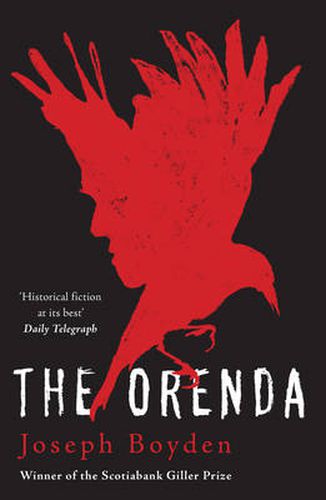The Orenda by Joseph Boyden
The Orenda is Joseph Boyden’s third and most ambitious novel. Set in the early seventeenth century, in a landscape now named Canada, the book is centered primarily around three characters: the French Jesuit missionary Christophe, known as ‘Crow’ for his black robe; Bird, a Huron warrior whose family have been murdered by the Iroquois; and Snow Falls, a kidnapped teenage Iroquois girl. The narrative swaps between these three perspectives and in doing so, demonstrates the blurring of lines between the heroic and villainous actions of both the Indigenous Huron people and the colonising French missionaries.
The Huron believe in the Orenda, a life force that flows through all living things, but this is at odds with Christophe’s faith as he tries to imbue in ‘the natives’ a love for his own god. Meanwhile, Bird and Snow Falls wage war on each other; the girl grieves for her murdered family at the hands of the Huron, and Bird has taken her as a substitute for his own slaughtered children. The threat of all-out war with the Haudenosaunee nation intensifies after Bird and his warriors seize members of the enemy tribe, murdering them in a ritual of protracted torture. It’s a ceremony that Christophe is powerless to cease; he can only guide their souls into a heaven they don’t believe in.
The subject matter of The Orenda has courted controversy and Boyden, who is of Anishinaabe heritage, has faced criticism in Canada for his depiction of torture committed by the warring nations. Of particular issue for commentators is his representation of the Haudenosaunee – Boyden has been charged with focusing on the Jesuit point of view, noble-savage stereotyping, and suggesting the inevitably of colonisation. But the book has also been lauded, by several reviewers, as a masterpiece and personally, I can see why. The Orenda is epic, beautiful and very, very good.


